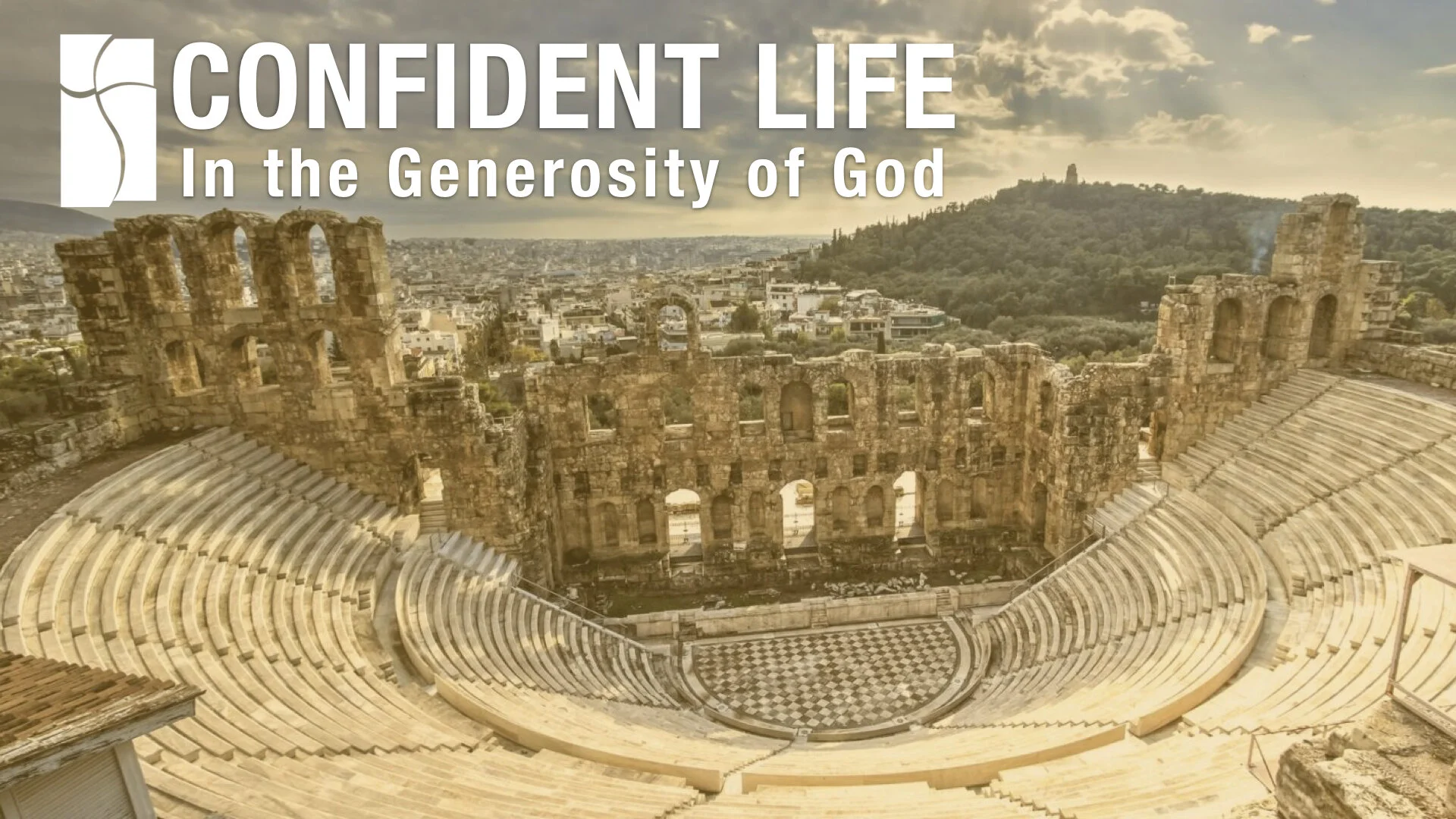Confident Life in the Generosity of God
God’s Choice of Generous Grace Jesus taught farmers and fishermen about treasures in God’s realm, serving God and Mammon, and choosing not to be anxious about life. Paul gave us the example of persecuted, impoverished believers overflowing with simple generosity. It’s hard to relate. We in the US are well-off in the world at large but most of us don’t feel rich enough to be generous. We like generosity. Henry Ford or Bill Gates makes a pile of money, sets up a foundation, becomes “good,” a benefactor. We learn generosity as a function of wealth. That’s “love of honor” (a payoff) not simple generosity. The striking thing in the NT is Generosity of the Poor, not for any glory but to learn God’s grace by simply seeing and helping the needs of others. There’s no virtue in poverty nor any necessary evil in wealth, but there’s danger in both. Dispair and rage, corrupt power, blindness to others, etc. All along the spectrum, we learn that Mammon saves. God’s grace draws us to see simple, non-manipulative generosity as a core of life for everyone no matter what their circumstances. Seek to share in the practice of Grace!
The Generosity of Grace
ar hearing Jesus’ teaching about serving God and Mammon and about being anxious about life. How can I live that in a world organized around Mammon and powered by anxious, competitive desire. Serving Mammon is our default setting. Each Sunday: “Worship through Giving.” What does it mean? Offerings aren’t mere tokens. They’re a language of gratitude, spoken with money – the stuff we get in exchange for a portion of our life, energy, creativity. We all pay life to get money. It can become Mammon: getting money is fundamental. Jesus takes money very seriously: “More blessed to give...” Paul recognized the challenge of teaching Gentiles and Jews. Traditional religion is often bargain and payment. If God is good to me, I’ll pay a vow. I’ll give in order to get far more. Is God good, fair? Am I getting return for my faith, worship, gifts I bring? Doesn’t God owe me?



